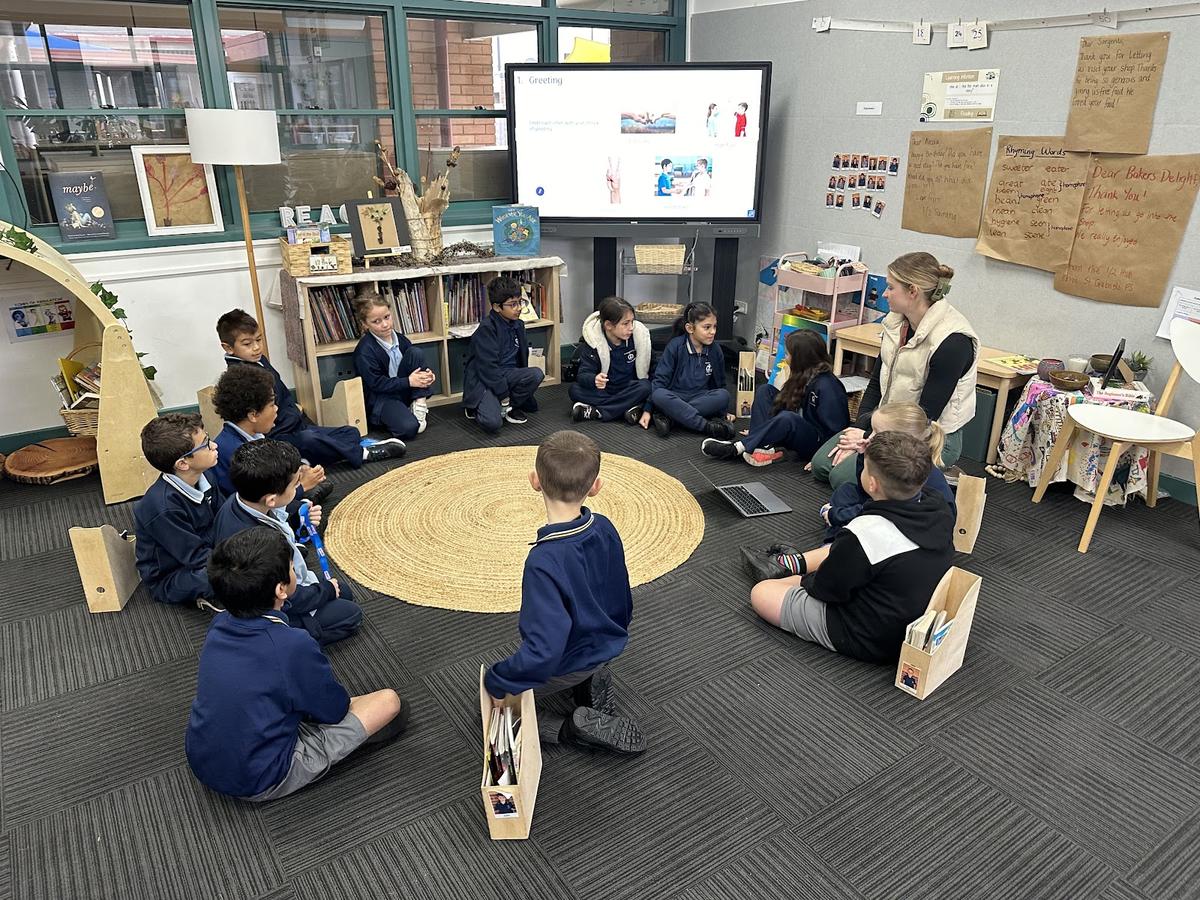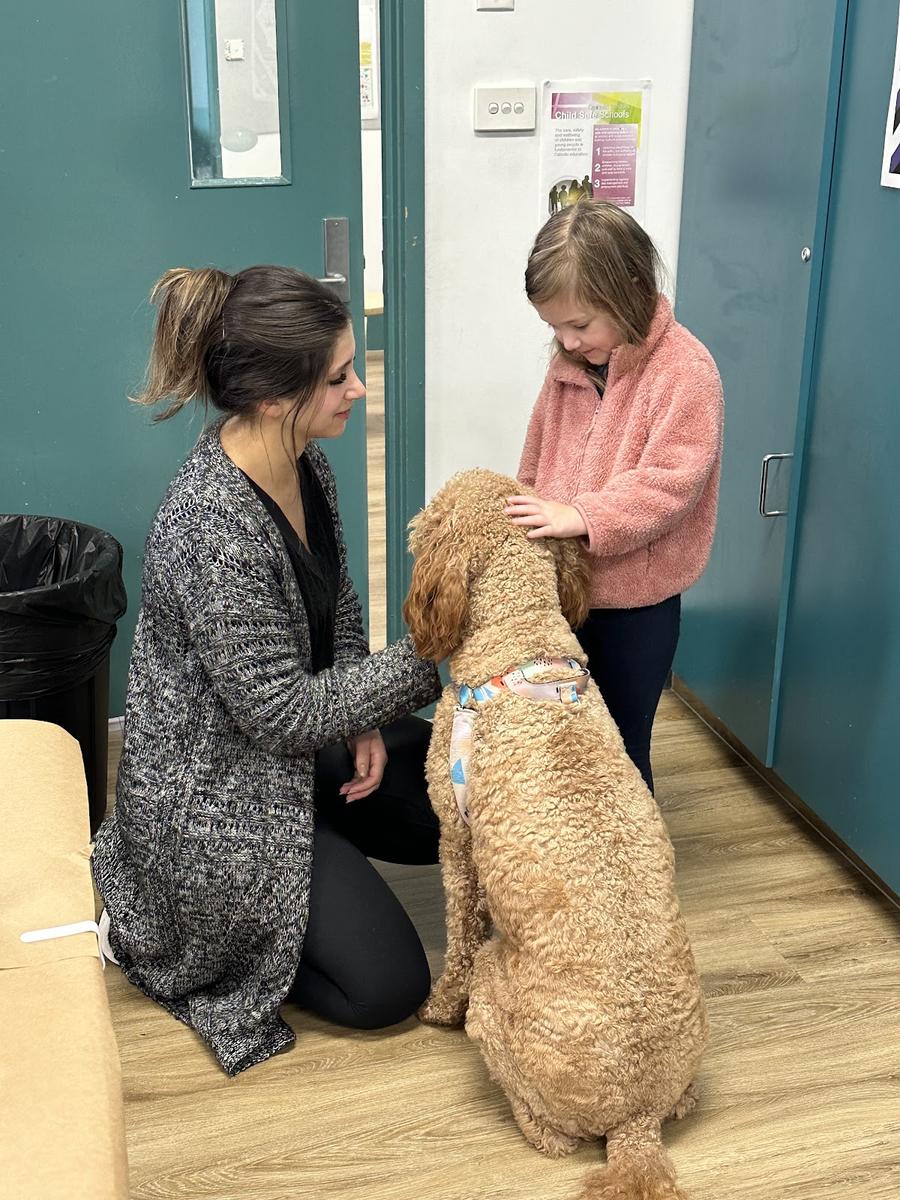Wellbeing & Learning Diversity

During our Getting Ready to Learn morning routine, the children have been focusing on the wellbeing strategy of 'Engagement' from the Berry Street Educational Model. This domain emphasises the importance of providing learning experiences that spark interest, have a purpose, and are relevant to the children's own ambitions. Each day during circle time, our children have been exploring Engagement through the following activities:
Positive Emotions
How do positive emotions help me learn?
Positive emotions enhance learning by improving our ability to absorb and retain information. They help to create a more relaxed and open state of mind, which facilitates better concentration, creativity, and problem-solving skills. When we feel happy, excited, or content, we are more likely to engage actively in learning activities and persist through challenges.
Flow
What is a state of flow?
A state of flow is a mental state where a person is fully immersed in an activity, experiencing a feeling of energised focus, full involvement, and enjoyment in the process. When in flow, time seems to fly by, and we are completely absorbed in what we are doing.
How does it feel when we're really into something?
When we are really into something, we feel a sense of deep focus and satisfaction. Distractions fade away, and we become intensely involved in the task at hand. This can lead to a sense of accomplishment and joy as we progress through the activity.
Motivation and Willingness
How do we stay committed when something is hard?
Staying committed when something is hard requires a combination of intrinsic motivation and resilience. We can stay motivated by:
- Setting clear, achievable goals.
- Breaking tasks into smaller, manageable steps.
- Reminding ourselves of the purpose and benefits of the task.
- Seeking support and encouragement from others.
- Reflecting on past successes to build confidence.
What are we grateful for?
Expressing gratitude helps to maintain a positive outlook and can boost motivation. We can be grateful for:
- Support from family, friends, and teachers.
- Opportunities to learn and grow.
- Personal strengths and abilities.
- Positive experiences and accomplishments.
Positive Priming
How do my emotions affect my learning?
Our emotions play a significant role in how we learn. Positive emotions can:
- Increase motivation and engagement.
- Enhance memory and retention.
- Improve problem-solving and critical thinking skills.
- Foster a positive learning environment.
Conversely, negative emotions can:
- Decrease motivation and focus.
- Impede memory and information processing.
Increase stress and anxiety, making it harder to learn.
At St Gabriel’s we begin our day or lesson with a Positive Primer to encourage the flow of positive emotions that can set a positive tone and enhance learning. This can include:
- Sharing something good that happened recently.
- Participating in a fun and engaging warm-up activity.
- Setting positive intentions or goals for the day.
Assembly Highlights
Thank you to all our children and hub educators for their dedication and effort in making our school assemblies both entertaining and reflective of the magnificent learning taking place within our school community.
Our assemblies have been a true celebration of learning, growth, and accomplishments. These gatherings have been a wonderful opportunity to recognise and applaud the remarkable learning our children have engaged in.
Learning Diversity
In August each year, schools across Australia are required to complete the Nationally Consistent Collection of Data on School Students with Disability (NCCD.) The NCCD counts the number of students who receive additional adjustments or support at school and helps governments plan for the needs of students with disability. Our Nurture Growth NCCD Team, submits our student data based on evidence and rigorous moderation. For further information, please see the linked flyer.
Staff Professional Learning - Supporting Neurodiverse Learners
St. Gabriel’s has engaged Sandhya Menon to provide professional learning to our staff in Term 3. Sandhya will deepen our understanding and knowledge of supporting neurodiverse learners, particularly ADHD and Autistic learners. Sandhya is an Educational & Developmental Psychologist and author of the books ‘The Brain Forest’ and ‘The Rainbow Brain.’
Sandya will deepen our understanding and knowledge of:
- Understanding Autism holistically
- Understanding ADHD and executive functioning
- Strategies for supporting Autistic & ADHDer students at school
You can find out more about Sandhya Menon at her website linked.













